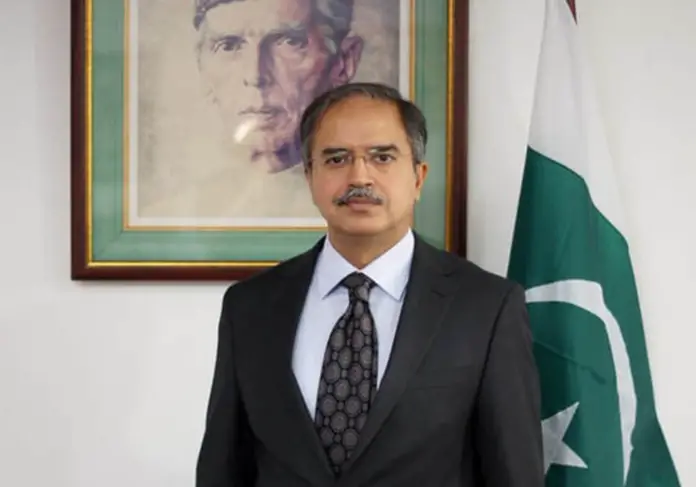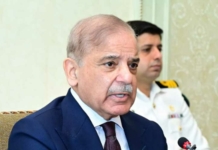Foreign Office Spokesperson Asim Iftikhar Ahmed has said that economic sanctions on Russia have affected the whole region negatively, including Pakistan.
While addressing a weekly media briefing in Islamabad, Iftikhar said that Pakistan has a clear stance on Russia, and it wanted that the UN impose sanctions on any country. He said that the sanctions imposed on Russia by the US have worsened the situation for developing countries. Regarding the earthquake and flood disaster in Afghanistan, he expressed his heartfelt condolences on the loss of human lives and financial losses.
The FO spokesman said that to help the Afghan brothers in these distressing times, aid has been sent to the country on the instructions of Prime Minister Shehbaz Sharif. While commenting on the situation in occupied Kashmir, he said that India continues to commit human rights violations there, and 113 Kashmiris have been killed by the Indian Army this year. He reaffirmed the stance of Pakistan on Kashmir that India must recognize the right of Kashmiris to self-determination as per UN resolutions.
Iftikhar added further that the issue of controversial statement of the leader of the opposition in the Canadian Parliament has been discussed with the Canadian government and Pakistan was deeply concerned about the baseless remarks. Canada has been asked to show responsibility regarding freedom of expression, he added.
Meanwhile, Pakistan told the UN General Assembly on Thursday that the most egregious aspect of the concept of responsibility to protect, or R2P, was its “selectivity and double standards”, saying its sponsors had ignored the need for “collective action” to protect the suffering people of occupied Palestine or of Indian-occupied Jammu and Kashmir.
“While high-sounding pronunciations are made about the situations in some targeted countries, mostly developing and Islamic states, there is complete silence with regard to other situations which clearly fall within the purview of paragraphs 138 and 139 of the 2005 Summit Declaration,” Ambassador Munir Akram said during a thematic debate in the 193-member Assembly on the doctrine of responsibility to protect.
The concept of R2P rests upon three pillars: the responsibility of each state to protect its populations; the responsibility of the international community to assist states in protecting their populations; and the responsibility of the international community to protect when a state is manifestly failing to protect its populations.
“One specific circumstance where those provisions would apply is in situations of foreign occupation or alien domination,” the Pakistani envoy said, adding that such situations were often rife with pressing human rights emergencies and could easily spiral to genocide, war crimes and crimes against humanity. “Yet, we have not heard from the concept’s sponsors about the need for ‘collective action’ to protect the people of occupied Palestine or of Indian-occupied Jammu and Kashmir,” Ambassador Akram added.
“Unfortunately,” Ambassador Akram said, “the proponents of R2P have observed a deafening silence on Indian crimes in occupied Jammu and Kashmir.” The concept of R2P should also be invoked to prevent the danger of an impending genocide against the 200 million Muslims of India, the Pakistani envoy went on to say.
“No one can be unaware of the systematic campaign underway in India by the ruling adherents of Hindutva to suppress Muslims and to eliminate the rich legacy of Islam in India,” he said, adding that “Muslims are murdered by lynch mobs; subjected to periodic pogroms; robbed of their livelihoods and citizenship under the patronage and with the encouragement of the ruling BJP-RSS government”.







